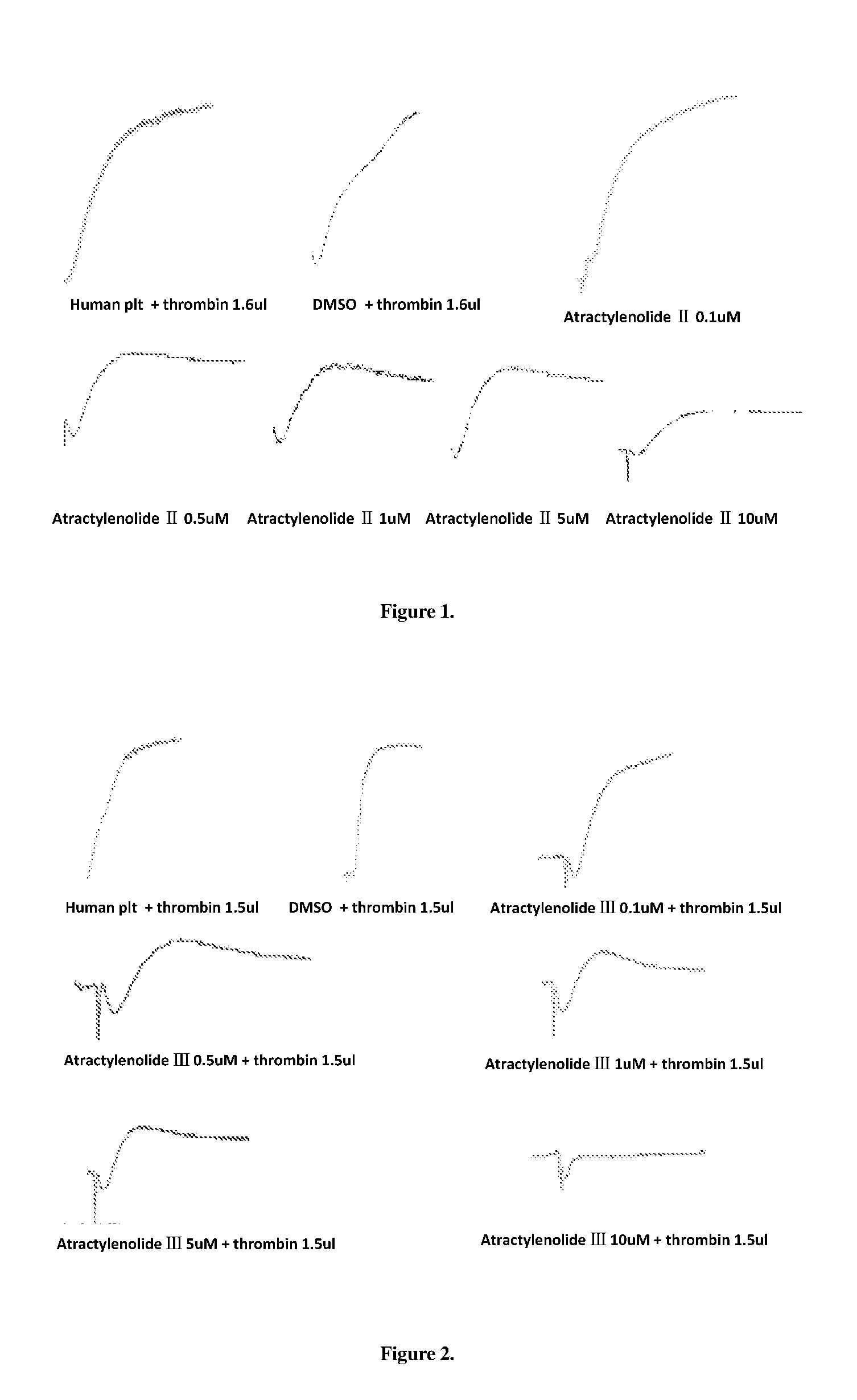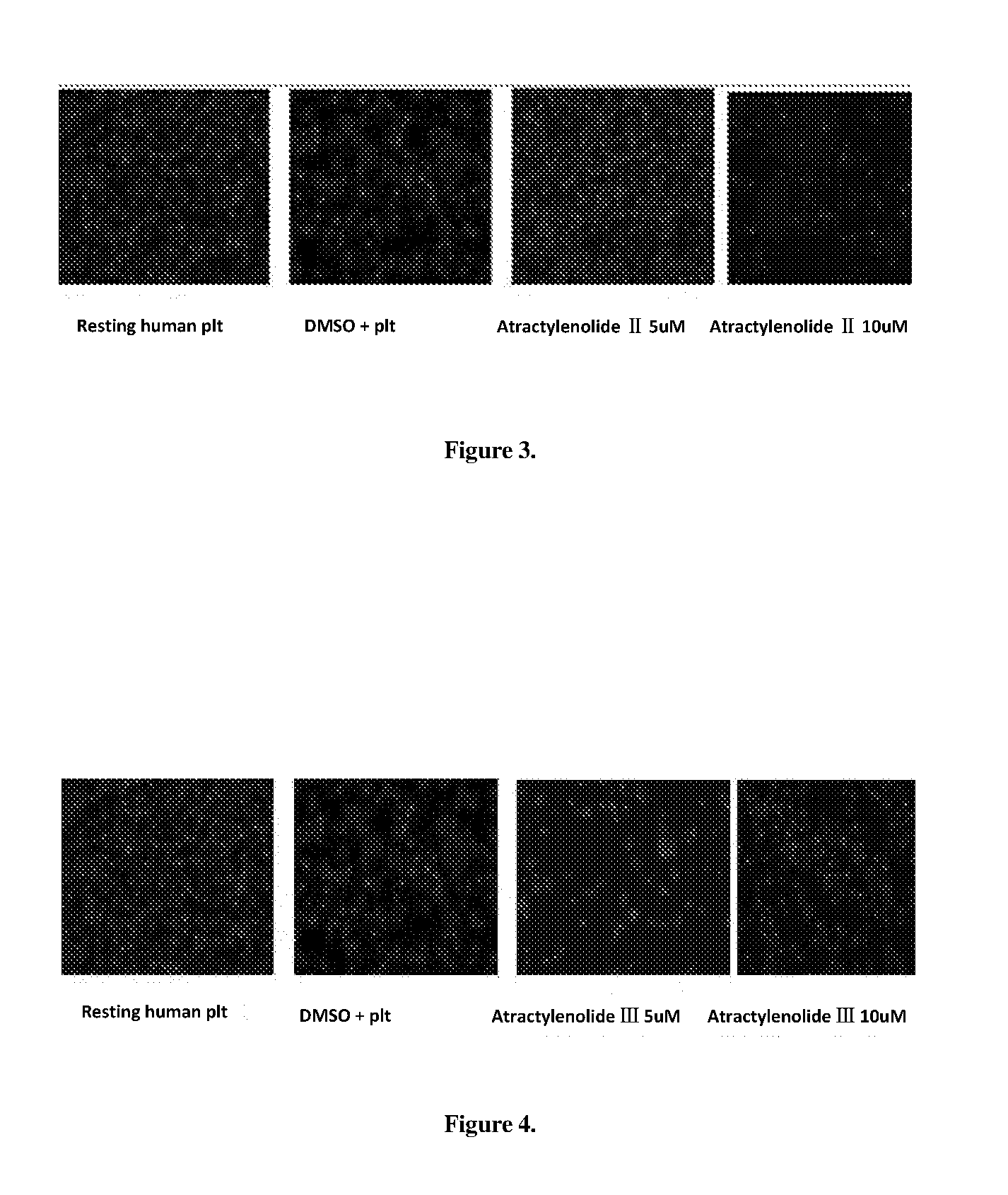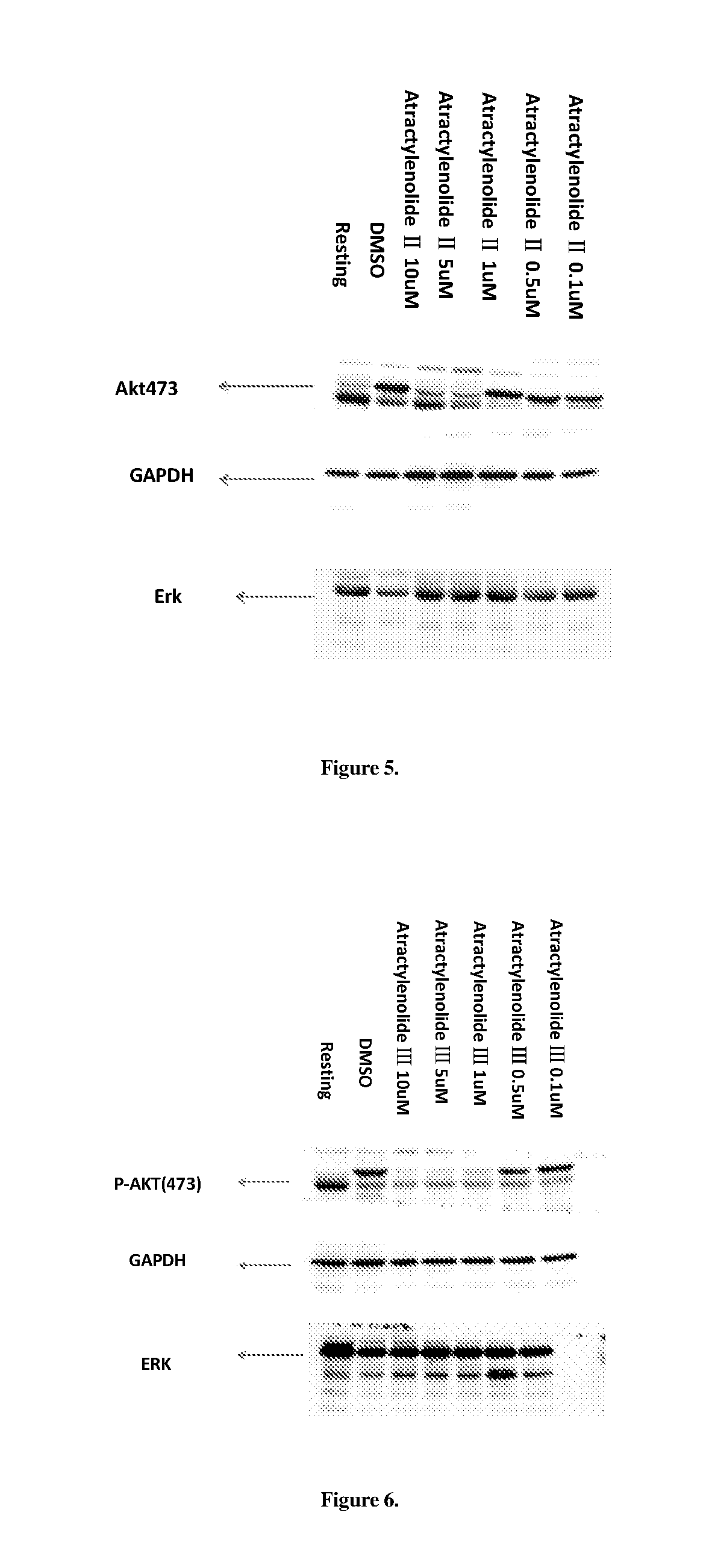Use of atractylenolide compound or its derivatives and a medicament for inhibiting platelet aggregation
a technology of atractylenolide and compound, which is applied in the field of pharmaceuticals, can solve the problems of sudden death, thrombophilic state, and impaired anticoagulation, and achieve the effect of broad application prospects and good efficacy
- Summary
- Abstract
- Description
- Claims
- Application Information
AI Technical Summary
Benefits of technology
Problems solved by technology
Method used
Image
Examples
example 1
Effect of Atractylenolide II on Platelet Aggregation Inhibition in Platelet Aggregation Test
I. Materials and Preparation
[0033]Atractylenolide II, dissolved in DMSO.
II. Experimental Procedure
Platelet Aggregation Test
[0034](1) Preparation of platelets: human blood plasma with high concentration of platelets is used to prepare platelets counting 3×108 / mL, which are placed in a water bath of 37° C.
[0035](2) Concentration gradient of compound atractylenolide final concentrations of the compound in 300 uL platelets are respectively 0.1 μM, 0.5 μM, 1 μM, 5 μM, 10 μM.
[0036]The compound is incubated in platelets for 3 mins before the experiment, and resting and DMSO are included in the experiment as control groups. Thrombin is used as stimulant. The aggregation curve and aggregation rate are obtained by the platelet aggregation test instrument.
REFERENCES
[0037]Weng Z, Li D, Zhang L, et al. PTEN regulates collagen-induced platelet activation. Blood. 2010; 116(14): 2579-2581.[0038]Liu J, Jackso...
example 2
Effect of Atractylenolide III on Platelet Aggregation Inhibition in Platelet Aggregation Test
I. Materials and Preparation
[0041]Atractylenolide III, dissolved in DMSO.
II. Experimental Procedure
Platelet Aggregation Test
[0042](1) Preparation of platelets: human blood plasma with high concentration of platelets is used to prepare platelets counting 3×108 / mL, which are placed in a water bath of 37° C.
[0043](2) Concentration gradient of compound atractylenolide III; final concentrations of the compound in 300 uL platelets are respectively 0.1 μM, 0.5 μM, 1 μM, 5 μM, 10 μM.
[0044]The compound is incubated in platelets for 3 mins before the experiment, and resting and DMSO are included in the experiment as control groups. Thrombin is used as stimulant. The aggregation curve and aggregation rate are obtained by the platelet aggregation test instrument.
[0045](3) Experimental results (see FIG. 2):
[0046]It can be seen from the above experimental results that: atractylenolide III has an effect of...
example 3
Influence of Atractylenolide II in Platelet Spreading Test
Platelet Spreading Test
[0047](1) Preparation of platelets: use the same method as abovementioned to prepare platelets counting 3×107 / mL.
[0048](2) Concentration gradient of compound atractylenolide II: final concentrations of the compound in 100 uL platelets are respectively 1 μM, 5 μM, 10 μM. The compound is incubated in platelets for 3 mins. The platelets treated by the drug are spread on fibrin (40 μg / mL). After Staining by the fluorescent antibody phalloidin, the spreading of platelets are observed under the 100× oil immersion lens.
REFERENCES
[0049]Chen X, Zhang Y, Wang Y, et al. PDK1 regulates platelet activation and arterial thrombosis. Blood. 2013; 121(18): 3718-3726.
[0050](3) Experimental results (see FIG. 3):
[0051]The experimental results show that atractylenolide II has an influence on platelet spreading.
PUM
| Property | Measurement | Unit |
|---|---|---|
| platelet aggregation | aaaaa | aaaaa |
| platelet aggregation rate | aaaaa | aaaaa |
| adhesion | aaaaa | aaaaa |
Abstract
Description
Claims
Application Information
 Login to View More
Login to View More - R&D
- Intellectual Property
- Life Sciences
- Materials
- Tech Scout
- Unparalleled Data Quality
- Higher Quality Content
- 60% Fewer Hallucinations
Browse by: Latest US Patents, China's latest patents, Technical Efficacy Thesaurus, Application Domain, Technology Topic, Popular Technical Reports.
© 2025 PatSnap. All rights reserved.Legal|Privacy policy|Modern Slavery Act Transparency Statement|Sitemap|About US| Contact US: help@patsnap.com



